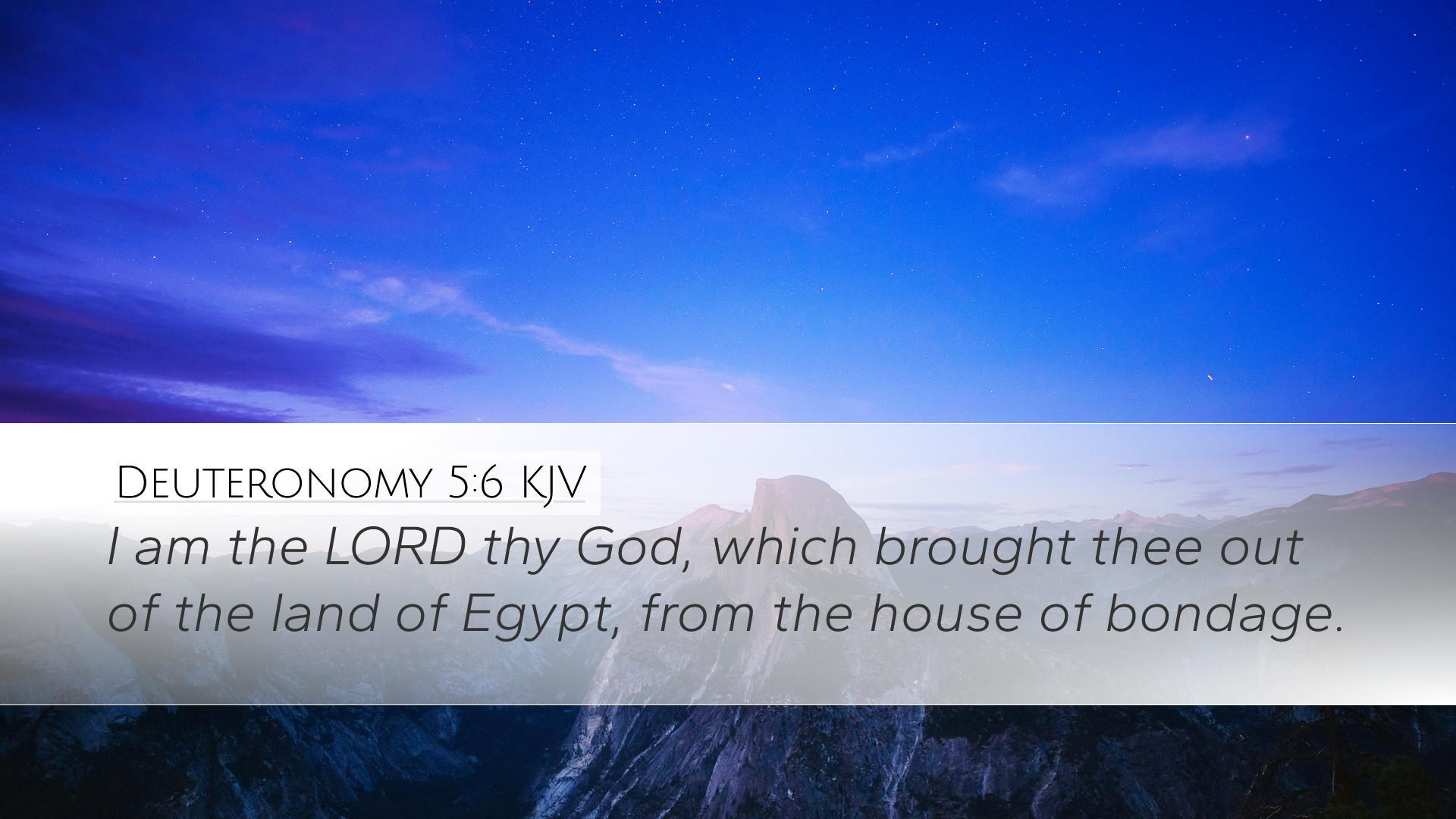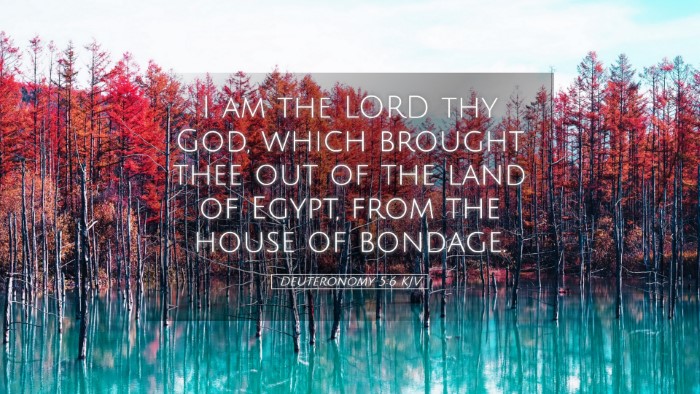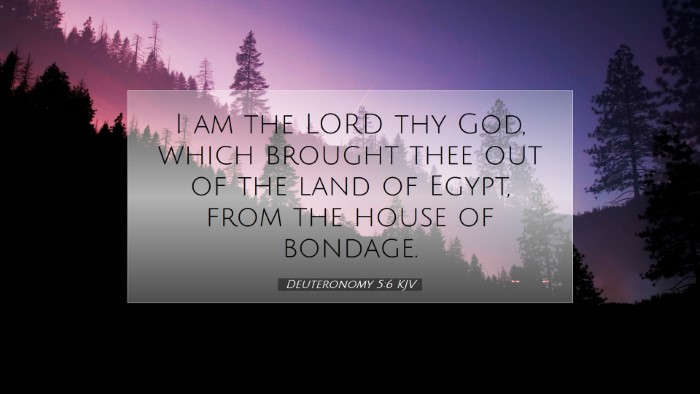Commentary on Deuteronomy 5:6
Deuteronomy 5:6 states, "I am the LORD your God, who brought you out of Egypt, out of the land of slavery." This verse serves as the introduction to the Ten Commandments and emphasizes the covenant relationship between God and His people.
Context and Background
Deuteronomy is a vital book in the Old Testament that recounts Moses' speeches to the Israelites before they enter the Promised Land. It reiterates God's laws and covenant, reminding the people of their identity and obligations as God's chosen nation. Understanding this verse requires an appreciation of its historical and theological context.
The Character of God
Matthew Henry highlights that the phrase "I am the LORD your God" establishes God's sovereignty and presence among His people. This declaration is foundational for understanding the rest of the commandments. Henry notes that God is not merely a distant deity; He is intimately involved in the lives of His people.
Redemption and Deliverance
Albert Barnes emphasizes the significance of God's redemptive act: "who brought you out of Egypt." This reference to the Exodus is central not only to Israel's identity but also to the understanding of God as a deliverer. The mention of "the land of slavery" serves to remind the Israelites of their past oppression and the freedom they have received through God's might.
Theological Implications
Adam Clarke expounds on the theological impact of this declaration. The recognition of God as the liberator provides a foundation for the law that follows. The commandments are not mere rules but responses to the relationship established by God's gracious acts. Clarke underscores the notion that obedience is rooted in gratitude for God's salvation.
Covenant Relationship
The introduction to the Ten Commandments signifies the covenant relationship between God and Israel. This is a two-sided agreement, where God's acts of deliverance demand a response from His people. Matthew Henry asserts that acknowledging God’s deliverance is vital for living morally and ethically.
Application for Believers
- Identity as God's People: Just as the Israelites needed to remember their identity, today's believers must recognize their identity in Christ and the implications of being called God's children.
- Gratitude for Redemption: Every believer is urged to reflect on their own redemption and deliverance from sin, paralleling the Israelites' journey from Egypt.
- Living in Obedience: The laws that follow in Deuteronomy are essential for believers today; they serve as guidelines for holy living in response to God's grace.
- Understanding the Nature of God: This verse helps to form a deeper understanding of God's character as both loving and just, desiring a personal relationship with His people.
Conclusion
In conclusion, Deuteronomy 5:6 encapsulates critical themes of identity, redemption, and covenant. It serves as a reminder that the laws given by God are not to be seen as burdens but as acknowledgments of His mighty deeds. For pastors, students, theologians, and Bible scholars, this verse invites deep reflection on how God’s past deliverance shapes our present obedience and our understanding of His character.


